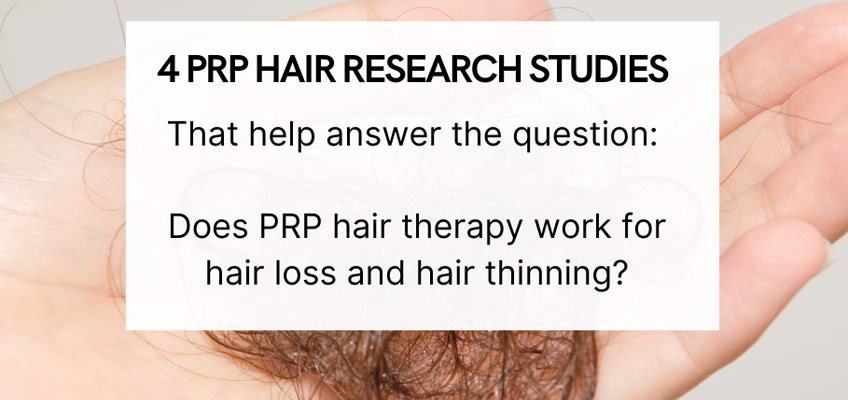
In this article, 4 PRP hair therapy research studies are reviewed that help answer the question: does PRP work for hair loss? In the 1970s, PRP was developed to treat muscle injuries and arthritis. It’s become a popular hair treatment since then and has been used across the globe for a variety of hair issues.
PRP injections have been effective for various forms of alopecia and both male and female pattern baldness. Aside from being a minimally-invasive 100% therapeutic all-natural procedure, PRP injections for hair therapy have many other distinct advantages over other more invasive and expensive procedures. Since the patient’s own blood is used in the process of creating PRP, there are absolutely no foreign additives or animal products in our PRP procedures.
After reviewing your completed health history form and your hair loss questionnaire, an LMC nurse draws a small blood sample from the patient. By the way…interesting fact about our plasma clinic: our nurses specialize in PRP procedures and each of them performs over hundreds of PRP procedures on an annual basis at our clinic.
After the small blood sample is drawn, it is then placed into one of our centrifuges to separate the plasma from the other blood cell components. Once separated, PRP is injected directly into the scalp with our U225 Mesogun. The U225 mesogen allows for the virtually painless, precise and comfortable micro-droplet injection of PRP on the scalp without the application of numbing cream.
PRP has many valuable hair-promoting growth factors, including:
- Platelet-derived growth factor
- Transforming growth factor b
- Vascular endothelial growth factor
- Epidermal growth factor
- Insulin-like growth factor
These growth factors are believed to have various functions required for new hair regrowth to occur.
Here’s an overview of some promising results from four research studies on PRP and hair loss to help answer the question: Does PRP work in treating male and female pattern baldness?
2014 Study Findings:
There was an increase in follicles from 71 to 93 units in 11 people with androgenic alopecia who were injected with PRP every 2 weeks for 3 months. Despite being too small to be conclusive, this study suggests that PRP may help increase the number of hair follicles and support healthy hair growth.
2015 Study Findings:
There was an improvement in the number of hairs, the thickness of those hairs, and the strength of the hair roots for 10 individuals receiving PRP injections every 2 to 3 weeks for a 3-month period. However, 10 people is still a small sample size to be conclusive, despite providing some support to the findings of other PRP and hair loss studies.
2019 Study Findings:
For 6 months, 2 groups used different hair treatments. In Group 1, 20 people used minoxidil, while in Group 2, 20 used PRP. PRP was vastly more effective than Rogaine at treating hair loss. Lower blood platelet levels could mean PRP isn’t as effective for you. It was also found that your own plasma can affect how well your own plasma works for hair loss
2020 Study Findings:
A systemic review was done that compared 7 randomized controlled trials on PRP therapy and hair density. The systemic review concluded that all 7 of the RCTs reviewed shared the common finding: that PRP was associated with increased hair density.
The big take-home message here is that if you’re noticing hair loss, you really should start PRP hair restoration therapy as soon as possible in order to save as many follicles as you can! We hate turning away people because they decided to come to us when it was already too late and all of their follicles were already gone.
Additionally, it’s crucial to remember that all PRP is not made the same! There are dozens of PRP kits available on the market (and unfortunately some illegal and non-Health Canada-approved ones are being offered as well). It’s important to know what PRP kit is being offered as different PRP kits extract different numbers of platelets.
We are proud to be the #1 provider of the most advanced PRP technologies on the market, Harvest PRP and Cervos PRP.
References
To book your complimentary consultation appointment, call us at 416-548-6548 Book a Consultation
